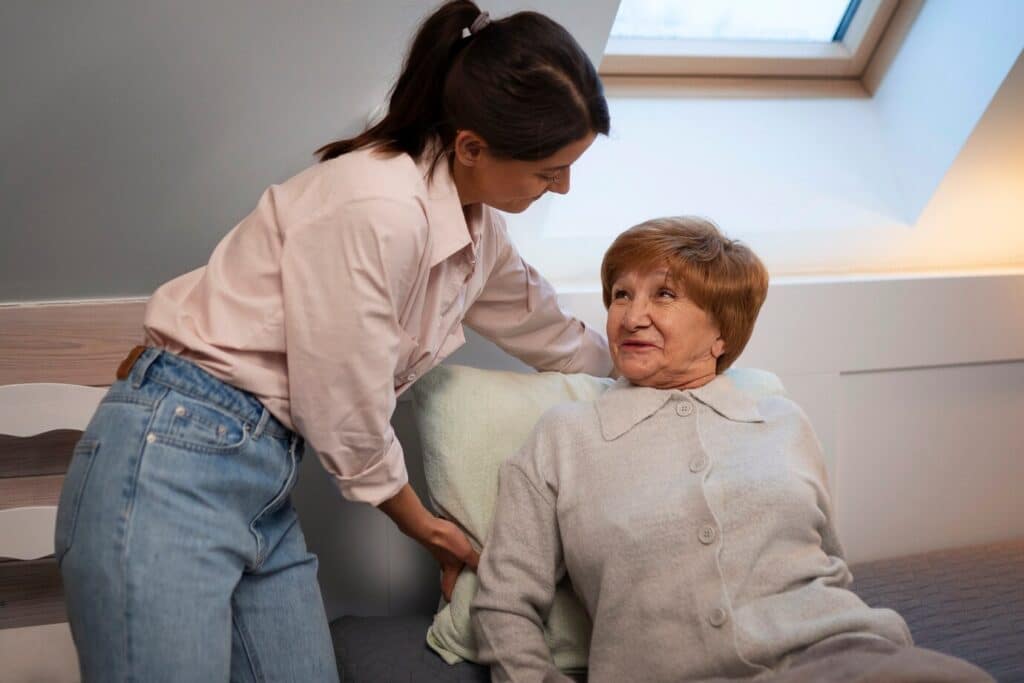Future of Senior Care Services: 2025 Trends You Should Know
In 2025, personalized care, smart technologies, and expanded access to both public and private support will redefine the future of senior care services. At Westmont Living, these emerging practices aren’t just trends—they’re fundamental improvements in how care is delivered to older adults.
This shift focuses not only on medical care, but also on social, emotional, and lifestyle support. Whether through in-home care services for seniors near you or elderly care services at home, the goal is to empower seniors to age with dignity, independence, and a high quality of life. Let’s explore how these changes are shaping senior care in 2025 and beyond.
Personalized and Smart Senior Care
Customizing Care Plans for Individual Needs
Every senior deserves care tailored to their unique physical, emotional, and social needs. Today’s leading senior care services prioritize individualized assessments and bespoke wellness plans that address chronic conditions, mental health, and personal goals. These plans often incorporate nutrition counseling, mobility exercises, and mental wellness checks to ensure a balanced lifestyle.
For seniors aging in place, private care for the elderly at home offers a flexible solution that allows care providers to adapt services based on each individual’s changing needs. From part-time help with meals and medication to full-time medical oversight, care plans can be scaled accordingly. Read more on personalized wellness plans.
Smart Technology Integration
From wearable health trackers to AI-powered medication reminders, technology is redefining how care is delivered. These tools support elderly care services at home by offering real-time monitoring, emergency alerts, and virtual consultations. This tech-forward approach not only supports independence but also ensures that help is always within reach. Explore how smart technology enhances safety.
Expanding Home-Based Senior Services
Meeting the Demand for In-Home Options
More families are turning to in-home care services for seniors near you as an alternative to facility-based care. These services offer the same quality of care in a familiar setting and may include help with activities of daily living (ADLs), companionship, and even skilled nursing care.
Flexibility is key: whether through agency-based caregivers or private care for the elderly at home, families can select the provider type and schedule that best suits their needs. This has proven especially helpful for seniors with mobility issues or those recovering from surgery.
Government and Free Senior Services
Navigating the financial side of care can be overwhelming. Fortunately, government-funded services for senior citizens have expanded, offering relief for families in need. Programs now support meals, transportation, home modifications, and even temporary respite care.
Additionally, elderly care assistance from the government can come in the form of Medicaid-funded home care or local senior support programs. These services are essential in ensuring equitable care access, regardless of income.
The Eldercare Locator is a great resource for finding local options. It connects families to in-home care services for seniors near them and other support systems.
Holistic Wellness and Preventive Health
A Whole-Person Approach
Modern senior care services emphasize a holistic view of wellness. This includes not just treating illness, but also promoting lifestyle changes that support physical, mental, and emotional health.
Programs often feature:
- Nutrient-dense meal plans
- Exercise classes tailored to aging bodies
- Social activities to reduce isolation
- Therapy services for grief, anxiety, and depression
Wellness-focused care has shown promising results in improving the quality of life and reducing hospital visits among older adults.
Preventive Screenings and Health Education
Preventive health remains a major pillar of modern care. Providers are incorporating routine screenings, vaccinations, and wellness checks into both facility and elderly care services at home.
For instance, fall-risk assessments and cognitive screenings are increasingly available through in-home care services for seniors near you, allowing early interventions that maintain independence and safety.

Innovations in Memory and Dementia Care
Dementia-Specific Therapies
Advancements in memory care are making a real difference in the lives of seniors living with Alzheimer’s or other forms of dementia. Techniques like reminiscence therapy, sensory stimulation, and personalized music therapy are just a few of the strategies being used.
These services can be delivered within facilities or through private care for the elderly at home, allowing families to support their loved ones in familiar environments. Learn about memory care technology tools.
Supporting Caregivers: Training and Tools
Continuous Education for Better Outcomes
Providers must invest in their staff to keep up with growing care demands. Continuous education and certification programs enhance the skills and confidence of caregivers. These include:
- First aid and emergency response
- Dementia care best practices
- Emotional intelligence training
Such initiatives are critical to maintaining the high standards that senior care services promise.
Family Involvement and Support
Family caregivers are vital partners in senior care. Recognizing this, more agencies now offer training and respite programs for family members. Elderly care assistance from the government sometimes includes vouchers or tax credits for family caregivers who provide daily support.
Social Connections and Community Engagement
Isolation remains a serious risk for many seniors, particularly those living at home. To combat this, elderly care services at home are increasingly integrating social wellness into care routines. Virtual meetups, mobile activity coordinators, and community engagement apps all help keep seniors connected.
Nutrition: Blending Health With Enjoyment
The Power of Diet
A balanced diet plays a central role in maintaining senior health. Care providers are moving beyond basic nutrition to include culturally relevant foods, allergy-friendly menus, and even cooking classes for seniors.
These nutritional services are available in senior living communities and also as part of in-home care services for seniors near you, helping promote wellness no matter where seniors live.
Emotional and Mental Health Support
Addressing the Whole Person
Emotional well-being is no longer a secondary focus. Modern care providers are building environments that nurture both body and mind through counseling, mindfulness programs, and group therapy.
Programs like these can be offered through elderly care services at home, particularly for individuals dealing with isolation, grief, or cognitive decline.
A Brighter Future for Senior Care
As we look ahead, it’s clear that senior care services are evolving meaningfully and inclusively. With personalized plans, enhanced technology, and expanded access to government-free services for senior citizens, seniors can now age in place with confidence, comfort, and dignity.
Whether you’re exploring in-home care services for seniors near you, seeking private care for the elderly at home, or researching elderly care assistance from the government, 2025 offers more options than ever to create a customized, compassionate support system.
To learn more about Westmont Living’s communities and care offerings, call 858-456-1233 or visit our website: Contact Westmont Living.
Discover the level of care you or your family member requires.What Level of Care Do You Need?
Frequently Asked Questions
How much does it cost to have a caregiver come to your home?
The cost of having a caregiver come to your home typically ranges from $20 to $40 per hour, depending on the level of care needed, location, and provider. For full-time care, monthly costs can reach $4,000 to $6,000 or more. Factors such as weekend or overnight care and specialized medical needs may increase pricing. It’s important to get a detailed quote based on your unique situation.
What are senior care services?
Senior care services include a range of support options designed to help older adults maintain their independence and well-being. These services include personal care assistance, housekeeping, meal preparation, transportation, and health monitoring. Some services are offered in the senior’s home, while others may be provided in assisted living or nursing facilities. The goal is to enhance quality of life while supporting safety and comfort.
Does Medicare pay for caregivers for seniors?
Medicare does not typically pay for long-term care or personal care if those are the only needed services. However, it may cover short-term home health care prescribed by a doctor, such as skilled nursing or therapy services. For help with activities of daily living like bathing or dressing, other programs like Medicaid or long-term care insurance may be required. It’s important to check eligibility and coverage details based on your specific plan.








